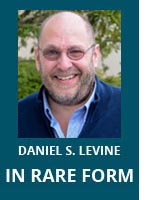
At the La Farge Medical Clinic in La Farge, Wisconsin, among the patients Jim DeLine cares for is a population of Amish and Mennonites—so-called Plain people. It’s an impoverished rural community that shuns modern technological conveniences like telephones, computers, and automobiles, and doesn’t believe in health insurance.
As a founder population, Amish people tend to marry within their own community, which has the effect of making the community more prone to certain rare diseases than the general population. There are about 20,000 Amish in Wisconsin, the fourth largest Amish community in the United States. Overall, the Amish population in the United States is expected to double every 25 years. Genetic conditions known to exist in the community are Troyer syndrome, sitosterolemia, maple syrup urine disease, Galloway Mowat syndrome, severe combined immune deficiency, primary ciliary dyskinesia, and Jalili syndrome, among others.
“There are rare diseases that are
relatively common in that population. If you study deeply a particular
population, and learn these conditions, it’s really transformative in terms of
the medical care that you can give,” said DeLine, who established his practice
in 1983 and in 2015 started the Clinic for Special Children to treat the Amish
and Mennonite population there. “It’s much more effective care, much less
costly care because you can identify much more efficiently, the particular
diagnosis at hand.”
All too often providers seek to impose a one-size-fits-all approach where the
patient needs to conform to the system. But a unique partnership between the University
of Wisconsin and La Farge Medical Clinic shows how it’s possible to develop
clinical and diagnostic approaches that are designed to address the needs of a
particular population. DeLine has been a bridge between old-style rural
medicine and cutting edge genetic science.
In 2012, a series of community meetings brought together DeLine, the University of Wisconsin, the Amish community, and Holmes Morton, a Lancaster, Pennsylvania-based physician who founded the Clinic for Special Children, which serves the Amish and Mennonite populations in Pennsylvania. Morton shared his experiences from the innovative work he has done in treating the Plain people in Pennsylvania and challenged the University to develop low-cost diagnostics appropriate for the community that could be done for no more than $50.
Based on Morton’s work, the university was able to identify a number of rare diseases that were more prevalent in the Plain people than in the population at large. But the Wisconsin population was a bit unique from the one in Pennsylvania because people came from Amish and Mennonite communities in Ohio and Indiana, as well as Pennsylvania. The University performed whole exome sequencing on a group of people in the community suspected of having a rare, genetic disease as a way to understand the conditions and variations unique to the population.
While most rare disease may be caused by a number of different genetic variants—scientists have found more than 1,700 mutations that cause cystic fibrosis—there are specific point mutations associated with the rare diseases that Plain people are more likely to develop. This opened the door for the university to develop low-cost tests for these specific variants.
Backed with funding from the Wisconsin Partnership Program in the School of Medicine and Public Health, researchers developed a series of targeted variant tests for genetic diseases that look for a single variant for a single disease known to exist within the Wisconsin Amish population. These tests are fast and affordable.
“This work is really a great example of precision medicine. We did very cutting edge exploratory genetic testing to inform us how to develop the tools to be specific, precise, and fast. And in this case, we’re also motivated to have it at low cost for genetic diagnosis,” said Christine Seroogy, an immunologist and professor of pediatrics at the University of Wisconsin School of Medicine and Public Health. “We did the whole exome sequencing, saw patients, and got a better understanding of the disorders that we needed to be able to address from a testing, treatment, and educational perspective. What we learned from our whole exome sequencing informed the development of our targeted variant tests.”
In addition, the UW specialists come out to DeLine’s clinic with regularity. This includes neurologists, ophthalmologists, immunologists, cardiologists, and genetic counselors who make several visits to the clinic during the year.
DeLine has also developed a relationship with Windows of Hope Project in Exeter, England. The project, which was founded in 2000, is a non-profit research study of the genetic causes of inherited conditions within the Anabaptist communities. Representatives of the project come out several times a year to DeLine’s clinic and provide whole exome sequencing at no charge to patients.
The treatment of rare disease can be expensive. For DeLine, each patient requires an individual approach. Some patients have been able to access emerging treatments through clinical trials. Others he has been able to connect to drugmakers through patient access programs. He’s learned to build a practice that’s efficient and cost effective, often charging about 5 cents on the dollar of what a patient would pay in the healthcare system at large.
“We do a lot on a dime,” said DeLine. “We just don’t have a lot.”
For DeLine, clinical practice has been a matter of building trust in the community he serves, listening to patients rather than imposing solutions on them, and being mindful of the need to find cost-effective solutions for them.
That’s an approach to clinical practice from which many physicians can learn.
Photo: James DeLine founded the Center for Special Children in La Farge, Wisconin by David Tenenbaum

Stay Connected
Sign up for updates straight to your inbox.
